Tokenization as a Driver of Financial Inclusion.
Democratizing Investment Opportunities Through Tokenization.
In today’s financial landscape, tokenization emerges as a powerful catalyst for financial inclusion, offering unprecedented access to investment opportunities that were traditionally limited to well-capitalized individuals or institutional investors. By transforming both tangible and intangible assets into digital tokens, tokenization lowers entry barriers and democratizes access to capital markets. At Token Genius, we harness this innovative technology to facilitate economic empowerment and widen financial participation across diverse demographic and socio-economic groups. This article delves into the mechanisms of tokenization, its impact on underserved populations, and its potential to fundamentally reshape investment paradigms. Through our efforts, we aim to create a more inclusive financial ecosystem where more individuals can leverage the benefits of digital assets, enhancing their economic opportunities and contributing to a more equitable global economy.
Concept of Tokenization and Financial Inclusion
Tokenization is the process of converting rights to an asset into a digital token on a blockchain. These tokens can represent ownership of various types of assets, from real estate and art to shares in business ventures. This technology not only facilitates easier, faster, and cheaper transactions but also lowers the investment minimums, making these opportunities accessible to a broader audience. This aspect is particularly transformative in financial inclusion, allowing people with smaller capital to invest in assets previously beyond their reach.
Mechanics of Tokenization
At its core, tokenization involves creating digital representations of assets on a blockchain, which ensures security, immutability, and transparency. Each token is encrypted and stored on a blockchain, making it almost impossible to alter or counterfeit. Smart contracts automate transactions and enforce the contractual agreements associated with these digital tokens without the need for intermediaries, further reducing costs and entry barriers.
Impact on Underserved Populations
Tokenization has a profound impact on financial inclusion by providing access to investment opportunities for underserved and unbanked populations. For instance, people in developing countries, who may not have access to traditional banking services, can now invest in tokenized assets through mobile platforms. This accessibility helps distribute wealth more evenly and fosters economic growth by channeling capital to productive uses in these regions.
Comparison with Traditional Financial Systems
Traditional financial systems often involve complex regulatory requirements, high costs, and intermediaries that can make investment opportunities inaccessible to the average person. In contrast, tokenization simplifies these processes and removes many of these barriers. By doing so, it not only makes investing more straightforward and less costly but also more transparent, as every transaction and its associated rights and responsibilities are recorded on a blockchain visible to all parties involved.
Statistical Evidence
Recent studies have demonstrated a significant increase in financial participation due to tokenization. For example, in regions where access to traditional banking is limited, tokenization has enabled up to 30% more individuals to engage in investment activities. These statistics highlight the role of tokenization in expanding financial markets to include those previously excluded due to economic barriers or geographic limitations.
Regulatory Considerations
As tokenization gains traction, regulatory bodies around the world are starting to adapt and create frameworks to govern digital assets. These regulations are intended to protect investors, ensure market stability, and prevent financial crimes, while also supporting innovation. For instance, the Financial Action Task Force (FATF) has issued guidelines on how cryptocurrencies and tokenized assets should be treated under anti-money laundering (AML) laws.
Economic Impact Studies
Economic impact studies of tokenization indicate substantial benefits across various sectors. In the real estate market, tokenization has been shown to increase property liquidity, making it easier for owners to sell fractional interests and for investors to enter the market. Similarly, in the arts and collectibles market, tokenization has democratized ownership, allowing more people to invest in high-value items that were previously only accessible to wealthy collectors or institutional investors.
Challenges and Barriers
While tokenization presents significant opportunities for financial inclusion, it also faces challenges that must be navigated carefully:
- Technological Literacy: The complexity of blockchain and tokenization can be a barrier for some, particularly in regions with low digital literacy. Education and simplified user interfaces are crucial to making these technologies more accessible.
- Infrastructure Dependencies: Effective tokenization requires robust digital infrastructure, which is not uniformly available across all regions, particularly in developing countries.
- Market Volatility: The cryptocurrency markets associated with tokenization are often volatile, which can deter conservative investors or those new to digital assets from participating.
Future Projections
The future of tokenization looks promising as technological advancements continue to address existing challenges. Innovations in blockchain scalability and user-friendliness, along with more stable digital asset options like stablecoins, are expected to drive further adoption. Additionally, as regulatory clarity improves, more businesses and individuals will likely embrace tokenization for various purposes, expanding its impact on financial inclusion.
Expert Opinions
Industry experts predict that as tokenization becomes more mainstream, it will play a pivotal role in the next wave of digital transformation in finance. They suggest that the integration of AI and machine learning with blockchain could make tokenization even more efficient and secure, leading to broader applications beyond asset tokenization, such as in identity verification and supply chain management.
Conclusion
Tokenization stands as a revolutionary force in the financial sector, significantly enhancing financial inclusion by making investment opportunities accessible to a wider audience. This technology offers a bridge over traditional barriers such as high entry costs and complex investment processes, opening up economic opportunities to individuals who were previously marginalized in financial ecosystems.
At Token Genius, we are committed to advancing this transformative technology. We believe in the power of tokenization not only to democratize investments but also to foster a more equitable distribution of wealth and opportunities across global markets. Our initiatives are designed to leverage the benefits of tokenization to enhance financial inclusion, provide secure investment platforms, and support economic growth in underserved communities.
In conclusion, tokenization is not just a trend; it is a sustainable shift towards a more inclusive and equitable financial future. As we continue to navigate and shape this evolving landscape, Token Genius remains dedicated to providing the tools, resources, and expertise necessary to help our clients and the broader community capitalize on the immense potential of tokenized assets.
Your Next Steps
As the landscape of financial inclusion evolves with tokenization, embracing this transformative technology is crucial for anyone looking to broaden their investment horizon and contribute to a more equitable financial system. Token Genius invites you to join us on this journey towards a more inclusive financial future.
We encourage you to explore further the possibilities that tokenization offers. Our website provides insights into the mechanics of tokenization, its benefits, and the latest developments in the field.
For those ready to take the next step and integrate tokenization into their financial strategies, or for organizations seeking to understand how this technology can enhance their operations, our experts at Token Genius are here to help. Reach out to us for personalized advice and tailored solutions that meet your specific needs and objectives.
Take action today Contact us at Token Genius to learn more about how you can participate in and benefit from the expanding world of tokenized assets. Let us help you navigate the complexities of tokenization and harness its potential to transform your financial activities and contribute to a more inclusive economic environment.












